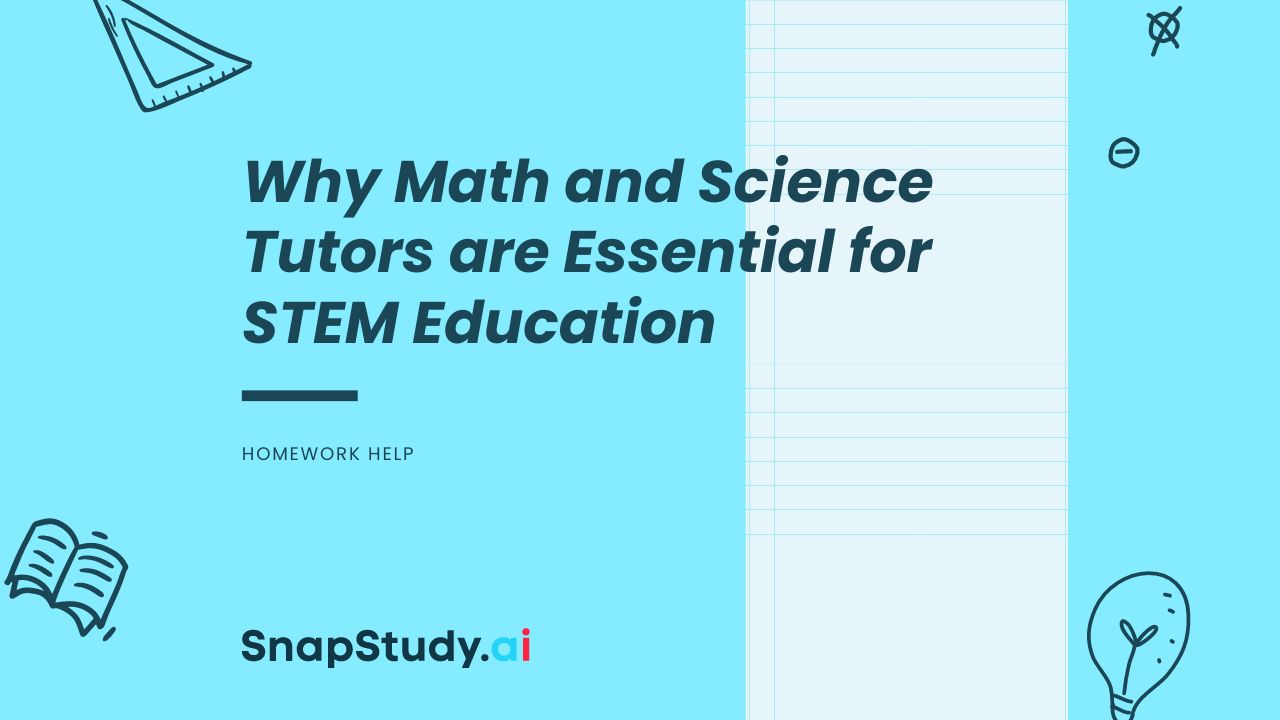STEM (Science, Technology, Engineering, and Mathematics) education is a crucial aspect of contemporary education systems, preparing students to navigate a future where these fields are increasingly dominant. Mathematics and the sciences form the backbone of this educational approach, with tutors playing an instrumental role in enabling a deeper understanding and application of these subjects.
The Importance of Math and Science
Mathematics and science are central to understanding the world in which we live. They form the basis for critical thinking and problem-solving skills and are the foundations of technological innovation. By mastering these subjects, students equip themselves with the ability to approach complex situations logically, make informed decisions, and contribute to the resolution of real-world problems.
Mathematics: The Language of the Universe
Mathematics, often referred to as the language of the universe, is the bedrock of many scientific disciplines. It provides a universal way for scientists to communicate their findings, from the smallest particles in quantum physics to the vast expanses of the universe in cosmology. A strong foundation in mathematics equips students with the tools they need to understand and contribute to many fields.
Science: Understanding Our World
Science, on the other hand, allows us to understand the natural world. From the biology of organisms to the physics of motion and the chemistry of substances, science offers us insights into how the world works. By learning science, students develop a fundamental understanding of the world, which is crucial in a society increasingly reliant on science and technology.
The Crucial Role of Tutors in STEM Education
Tutors play a pivotal role in STEM education. They provide personalized learning experiences, reinforce classroom learning, and build students’ confidence in these traditionally challenging subjects.
Personalized Attention and Adapted Learning
In a conventional classroom setting, teachers may not always be able to provide individual attention due to large class sizes. Tutors can offer personalized attention, adapting their teaching methods to suit the learning style of each student. This tailored approach can make complex math and science concepts more accessible and enjoyable.
Reinforcing Classroom Learning Through Practice
Tutoring sessions offer an opportunity to reinforce what students learn in school. These sessions allow students to review and practice concepts until they are fully understood. This repeated exposure enhances retention and understanding, ensuring that students are not merely memorizing information, but truly comprehending the material.
Building Confidence and Encouraging Engagement
Tutors can also help build students’ confidence in their abilities. By providing a safe and supportive learning environment, tutors can encourage students to take on challenges in these traditionally tough subjects. This confidence can lead to increased engagement in STEM subjects and greater academic success.
Conclusion
The role of math and science tutors in STEM education cannot be overstated. They provide the support and guidance students need to excel in these subjects, paving the way for academic success and future career opportunities in STEM fields. Their contribution extends beyond academic achievement, fostering critical thinking, problem-solving skills, and confidence in students. Hence, math and science tutors are indeed essential for a robust and dynamic STEM education.





